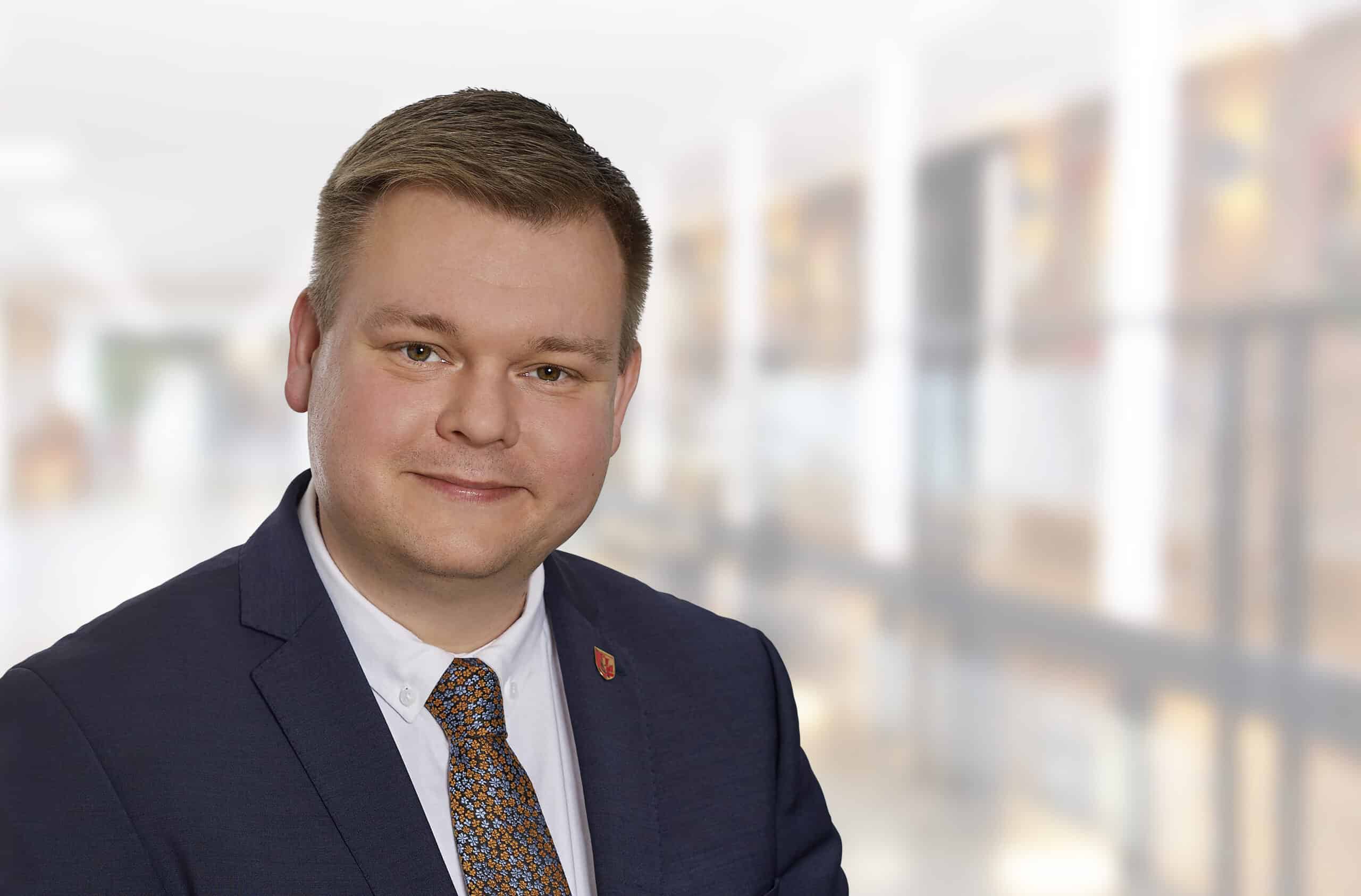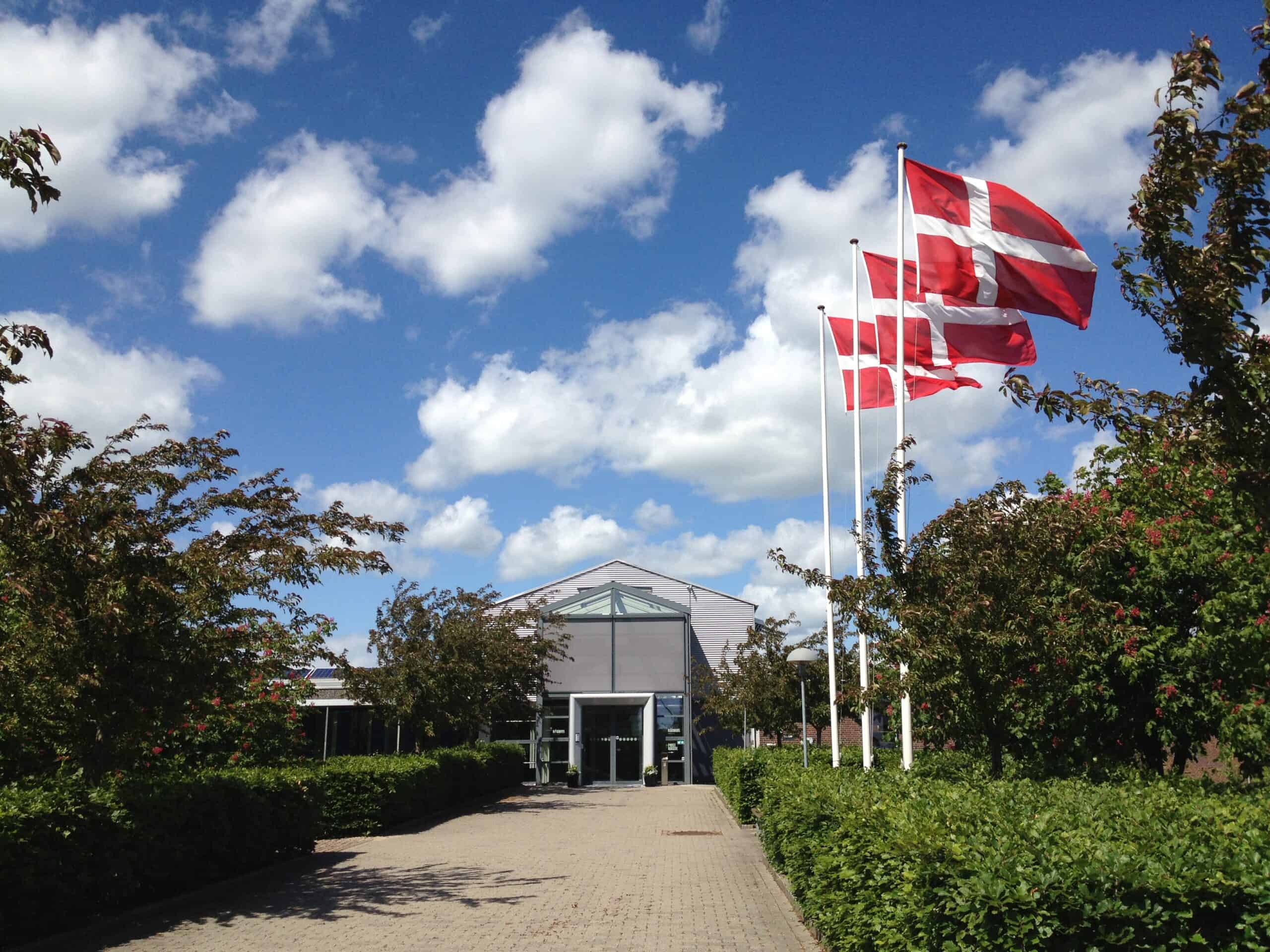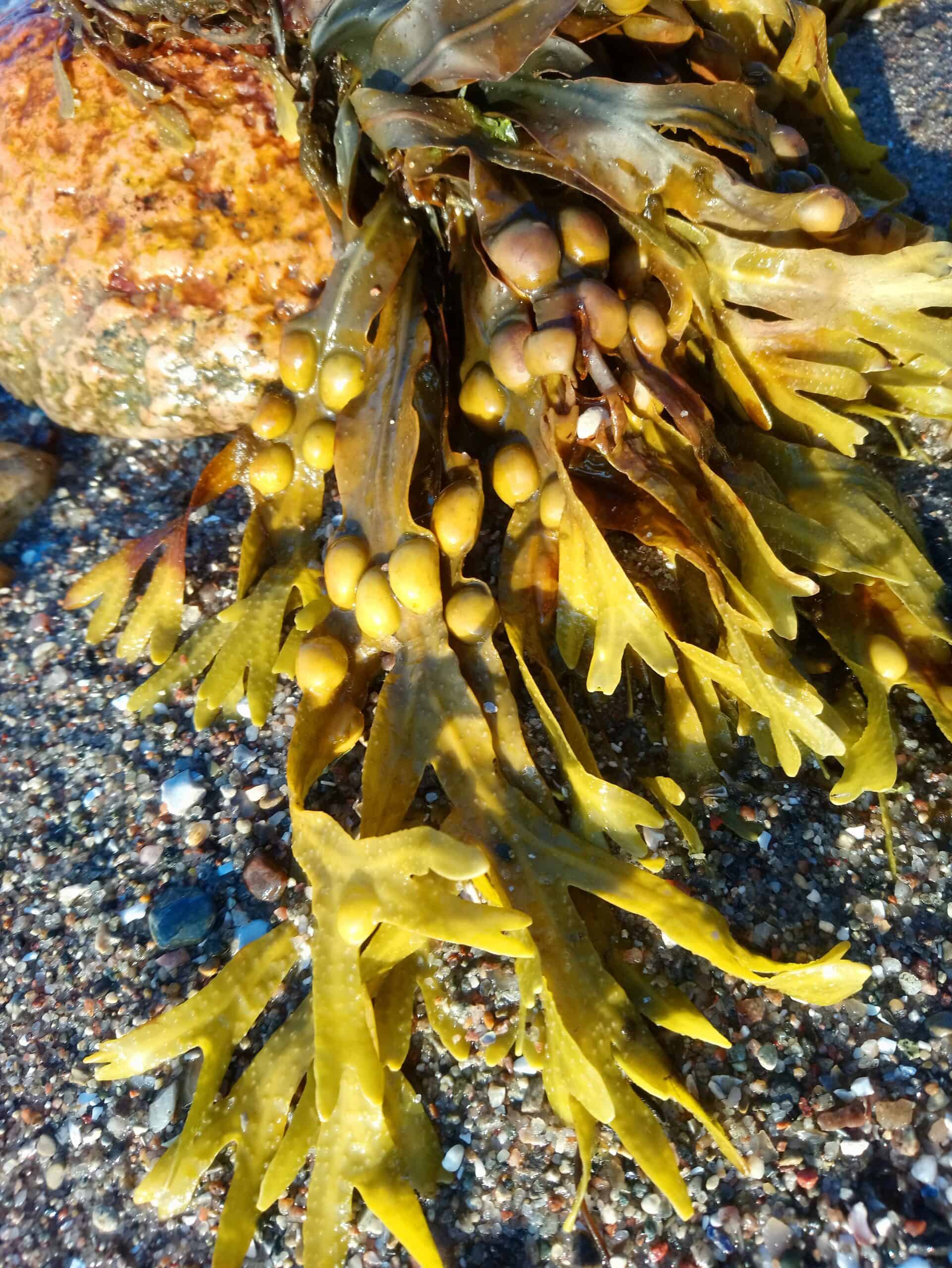
20 April 2022
“There is knowledge and experience to be found in cooperation with our neighbouring countries.”
Interview with Mayor of Guldborgsund Municipality, Simon Hansen.
Written by Luca Arfini
When you face pressing global challenges, it is almost a natural step to join forces with your neighbours to find a common solution to meeting the needs of citizens across the whole Baltic Sea region. Simon Hansen, Mayor of the Danish Guldborgsund Municipality, describes how taking part in transnational projects funded by Interreg Baltic Sea Region helped his city to make urban mobility greener and to advance urban social innovation ultimately improving the lives of its residents.
#DidYouKnow
Guldborgsund Municipality took part in four transnational Interreg projects: ALLIANCE, Blue Platform, Cities.multimodal, TENTacle and UrbCulturalPlanning.
What added values have transnational Interreg projects brought to Guldborgsund Municipality and its citizens?
In Guldborgsund Municipality, we have a long tradition of transnational cooperation. During the last couple of years, we have participated in five different Interreg programmes and we have taken part in 18 Interreg projects. Four of these projects have been supported by Interreg Baltic Sea Region and have provided us with valuable lessons for our municipality and our citizens. One good example is the project called cities.multimodal, whose pilot helped us to improve urban mobility near the surroundings of schools. Within the project framework, we have analysed the traffic situation in the campus area in Nykøbing in the mornings and afternoons.
Over the course of three weeks, 21 students participated in the project. They evaluated the drivers’ behaviour in the area and looked for ways how to make the system safer. After the end of the project, we used a drone to assess the final outcome and we saw the new solutions we provided, like putting up more signs, having a police officer help direct traffic, and enforcing driving rules, really improved the traffic flow in the area. So, that’s a very good example of an Interreg initiative with visible successful outcomes.
#DidYouKnow
Cities.multimodal gathered 10 partner cities across the Baltic Sea to improve urban mobility in a sustainable manner. Project partners combined walking, cycling, the use of public transport as well as shared mobility (bikes, cars, e-cars, and bikes) as a more sustainable alternative to individual private car use. The partner cities defined a pilot area, in which they implemented different activities and measures on multimodality and mobility management.
What did Guldborgsund municipality manage to achieve thanks to Interreg Baltic Sea Region that you wouldn’t be able to do alone?
It’s very clear that we could not have achieved all these important results without cooperating with project partners from all around the Baltic Sea region. The knowledge, inspiration, and experience from other projects partners were essential to achieving our goals.
For example, the ALLIANCE project and the Blue Platform project and the expertise of our partners provided us with a whole new perspective on how to exploit our marine resources sustainably and develop new marine biotechnology.
In the UrbCulturalPlanning project, we were working in project labs where each partner presented their tasks and solutions. In this way, we all received important feedback from other partners. Even the pandemic didn’t stop us as these labs actually continued to take place virtually.
The cultural planning method was already developed and used in some countries. However, thanks to this Interreg initiative, we gained new experiences and knowledge and managed to adapt the method for our own situation. Now, we have developed new methods for city planning that we can use in other areas of our municipality.
#DidYouKnow
The UrbCulturalPlanning project used culture and creativity to make living better in the neighbourhoods in cities or in rural areas in the Baltic Sea region. Cultural institutes, cities/municipalities and universities in 8 countries across the Baltic Sea organised eight Urban Labs to adapt cultural planning methods for wider use in the region, including topics of cultural mapping, cultural visioning, and stimulating local social innovation.
Can you give a few practical examples of the long-term results of Interreg initiatives in your municipality?
I believe a good example is the UrbCulturalPlanning project. In that case, we had more than 600 children and young people involved in cultural activities that were boosting their self-confidence and identity. They worked on creating music videos, cookbooks, and poems, and then they had to show what they came up with to all the citizens in the municipality.
This is a long-term result because the self-confidence that youth got from that project is something that will help them further in their life path. The message we developed from that project is also valid for other aspects of the municipality, and that also has a long-lasting impact.
Another example is cities.multimodal pilot, thanks to which we have now a better understanding of the need to make cycling within the city easier and safer. Within the project framework, we established a number of single bicycle parking boxes allowing people to park their bikes safely close to the train station. So, certainly, this is also a very concrete long-term result.
Is there any Interreg Baltic Sea region project that you are personally more familiar with? If yes, why?
Yes, it’s again, the project UrbCulturalPlanning. Project partners organised very good activities for children and young people close to the area where I live. One of them was drafting poems about that neighborhood. The poems and texts told small stories about personal experiences of living in this area of the city, giving an impression of what it really means for them to dwell in that neighborhood. I was positively impressed by the high quality of the poems written by young people.
We even presented these poems to all the municipality and its residents. Involving children and young people is an issue that I personally find highly relevant, as former Chairman of the political Committee of Children and Education. One of our main focuses is to make sure that children and young people get the best out of their lives when they grow up. So, that’s why I am particularly attached to this project.
Our Programme offers new funding for innovative, water-smart and climate-neutral solutions developed transnationally for the benefit of the region. Among these topics, do you find any that is particularly interesting for Guldborgsund?
I think all the topics are interesting for Guldborgsund Municipality. We have a very positive and broad view of Interreg cooperation. Our municipality has a broad tasks portfolio, and therefore I think all the topics of your new Programme are quite relevant for us. It’s our ambition that all municipal departments benefit from Interreg projects. All our departments need transnational inspiration and knowledge-sharing to improve and do the best for our citizens.
We think Interreg Baltic Sea Region has specific strengths because of the regional and horizontal approach, fostering sustainable development in different key areas. It also brings people from all over the Baltic Sea Region together, making them cooperate on crucial topics for all of us. So, that’s why we think your Programme is a great resource for us and we want to be a part of it in the future as well.
What would you say if you were to encourage other municipalities to join Interreg projects as partners?
Obviously, there are so many benefits in taking part in transnational cooperation. I think it makes sense for a municipality to look to its neighbouring countries for cooperation. There is knowledge and experience to be found in cooperation with our neighbouring countries and even beyond. We need to understand that they have the same challenges as us and together we might find new and better solutions for the benefit of our citizens. This could be, for instance, better public services or a new method to involve our young citizens like in the UrbCulturalPlanning project.
Our municipal staff also find transnational work rewarding and enjoy extending their professional network across borders. We are proud to show all the good things about our area. We should also see transnational cooperation as a very good branding for our region. I hope this inspires more municipalities to acknowledge all the benefits of taking part in transnational Interreg projects. Interreg has given us so many opportunities for transnational experience, useful knowledge, and expanding our professional network.
#DidYouKnow
In the next years, Interreg Baltic Sea Region will keep supporting projects having a positive impact on the residents of the region, if you have a smart or green idea and want to receive funding for it check our gateway for applicants, where you will find all the information on our next call for applications.
More recent news
Grand results of the first round of small projects!
Despite the winter scenery, the results of 17 finalised Interreg Baltic Sea Region projects are in full bloom! And behind them lie two years of intensive work across borders, mutual learning and inspiration, and connections that last.
Climate-neutral future at hand for Baltic Sea region cities
Turning a city into a climate-neutral one requires knowledgeable people, thorough planning and solid financial resources. But how can cities manage this transition smoothly? The Interreg project Climate-4-Case guides cities around the Baltic Sea on how to do that right.
Designing Interreg Baltic Sea Region that belongs to everyone
10 December 2025 Designing Interreg Baltic Sea Region that belongs to everyone Written by Eeva Rantama What if the next Interreg Baltic Sea Region...
Monitoring the Programme’s progress: transnational cooperation in the making
Representatives from nine Programme area countries gathered in Berlin on 19-20 November 2025 to review the progress of the Programme’s implementation and start preparing for the post-2027 period.











